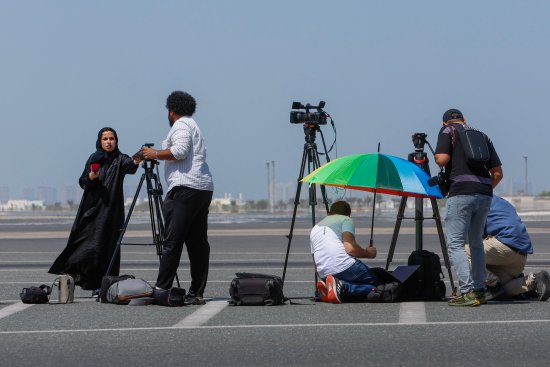
The swap is being seen as a stepping stone for more bilateral dialogue and a "political ceasefire" between Tehran and Washington.
After months of negotiations, the U.S. is unfreezing $6 billion in Iranian oil money and releasing five Iranian prisoners in exchange for the release of five American citizens held in the notorious Evin prison in Tehran.
The deal, brokered by the Qatari government, represents an unusual moment of cooperation between the two countries, says Sanam Vakil, director of the Middle East and North Africa program at Chatham House.
“The deal is an important stepping stone,” Vakil says. “It reinitiated indirect bilateral dialogue between Tehran and Washington and it sets the ground not only for the release of American hostages held in Iran for far too long, but also for discussions to contain Iran’s advancing nuclear program.”
[time-brightcove not-tgx=”true”]The $6 billion had been frozen in South Korea for years and has been a major point of dispute between Tehran and Washington.
The Biden administration now has an informal agreement with the Iranian government that will roll back enrichment levels in exchange for increased oil sales, Vakil says. The New York Times previously reported in June, based on interviews with Israeli, U.S., and Iranian officials, that the Biden Administration and Tehran were quietly negotiating an unwritten agreement that would amount to a “political ceasefire.”
Nevertheless, some remain skeptical that the Islamic Republic would follow through on that kind of informal agreement. On Saturday, Iran barred one third of United Nations inspectors from monitoring its nuclear sites.
“The European Union is highly concerned by the report of the Director General of the International Atomic Energy Agency (IAEA) on Saturday’s decision by Iran to withdraw the official designation of several experienced IAEA inspectors to monitor and verify its nuclear programme,” states a press release.
Another concern, Vakil says, is that the Iranian regime could be further incentivized to take hostages in order to leverage political and monetary concessions from Western governments.
“The Islamic Republic has a long history of detaining American hostages. It goes back to 1979 when American hostages were held in the U.S. Embassy for 444 days,” Vakil says. “Western governments have not developed a united or coordinated policy that they’re willing to implement to prevent this practice of hostage-taking from continuing.”
Three of the five American prisoners’ names have been released to the public. All three are of Iranian descent and were sentenced to 10 years of prison time for espionage and cooperation with the U.S. government. The longest serving prisoner, businessman Siamak Namazi, has been imprisoned for eight years. The other two known prisoners, Emad Shargi and Morad Tahbaz, were arrested in 2018.
The three prisoners were housed in Evin prison, which is where the Islamic Republic jails many of the most prominent public intellectuals and political prisoners critical of the regime. It has been nicknamed by many as “Evin University” due the large numbers of students and professors jailed there.